To this day, our homestay in this remote Hmong village in the hills of Laos was the most amazing cultural experience we’ve encountered. Come along as we share our story!
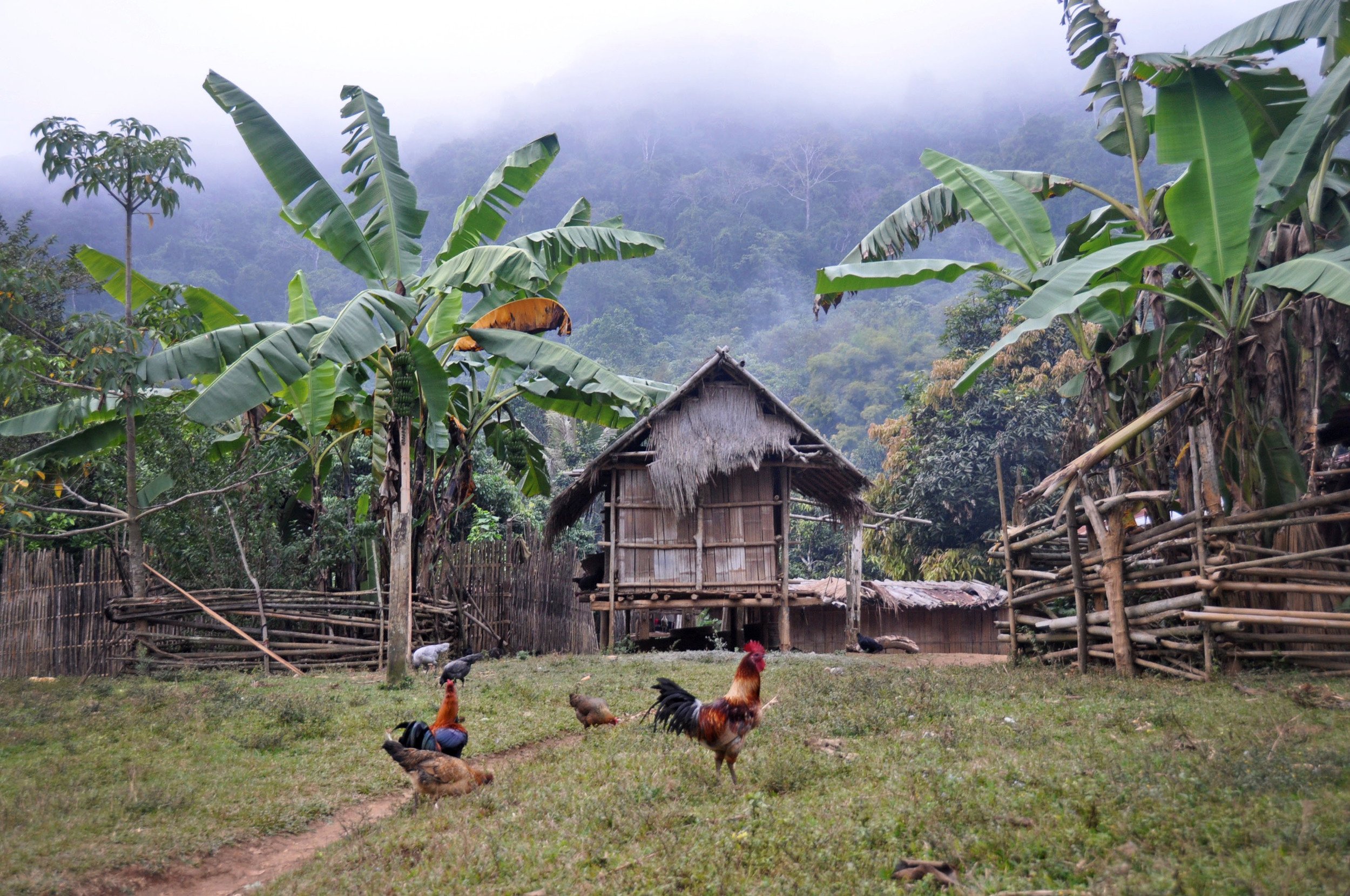
I couldn’t understand any of the words that were being spoken around me, but I smiled as if I did. I held a piece of chicken between my greasy fingers and nibbled at the meat. My stomach begged me to stop, but the smiling faces urged me to keep eating so I picked up another piece.
How in the world did I end up here, in this one-room home with dirt floors and a single light bulb dangling from the ceiling? How did I end up here in this room surrounded by 20 strangers, observing my movements with smiling eyes?
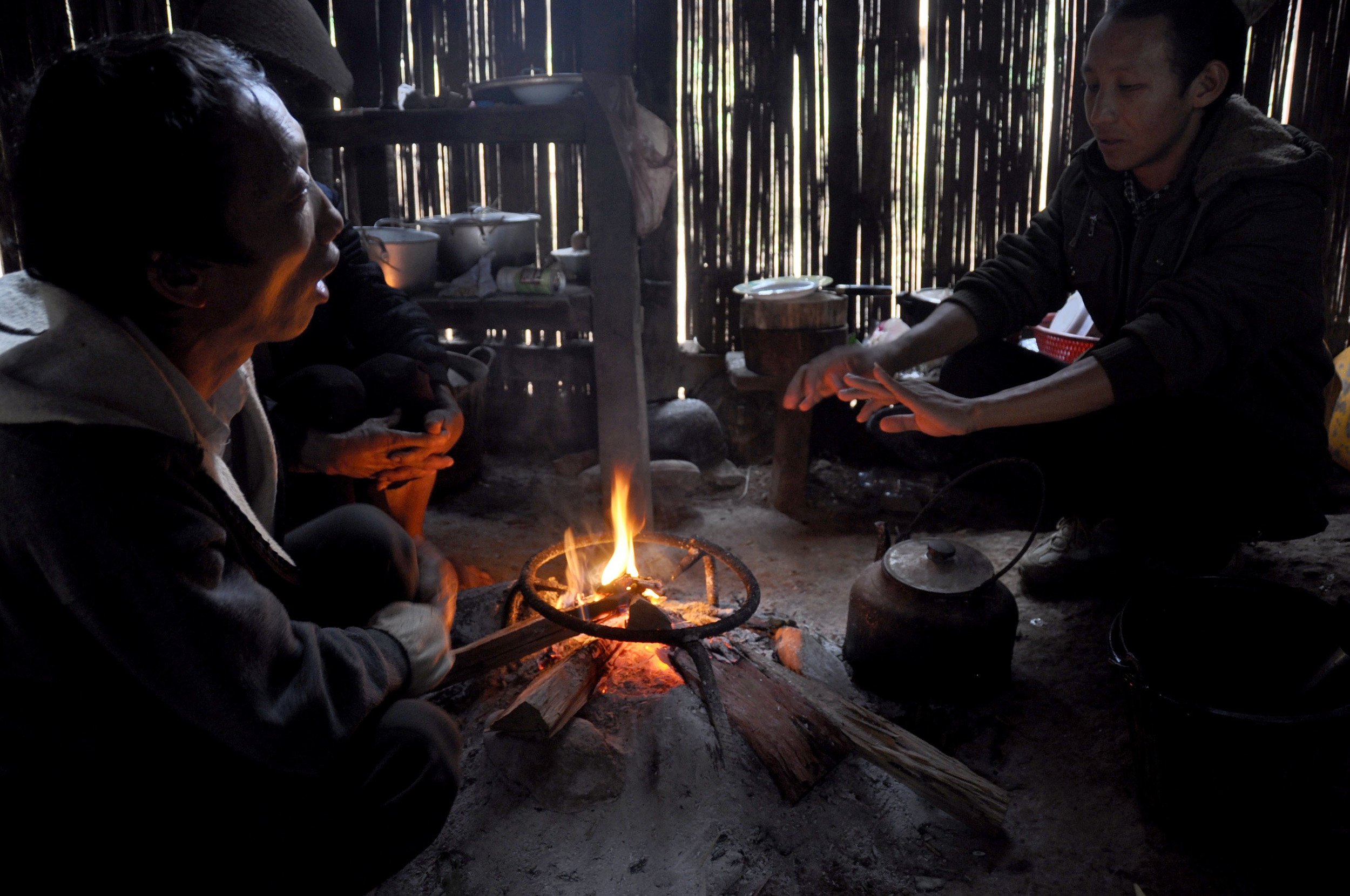

I brought the piece of chicken to my lips and suddenly stopped. I was staring straight into the eyes of a chicken. Well, I guess rooster is the correct term because it definitely had a red comb on top of its head. I had to get rid of it, but wanted to spare the feelings of my gracious hosts, so I did what any person desperate to hide a rooster head would do: I covered it up with other bones, careful not to attract any attention.
It was Hmong New Years, and the people of this remote village in Laos welcomed Ben and me into their homes as if we were old friends. Hugs were given before names were exchanged, and three families argued over who would host us for dinner, so we went to all three. Which brings me back to my stomach. It was one bite away from exploding, but a shot of homemade whiskey was headed in my
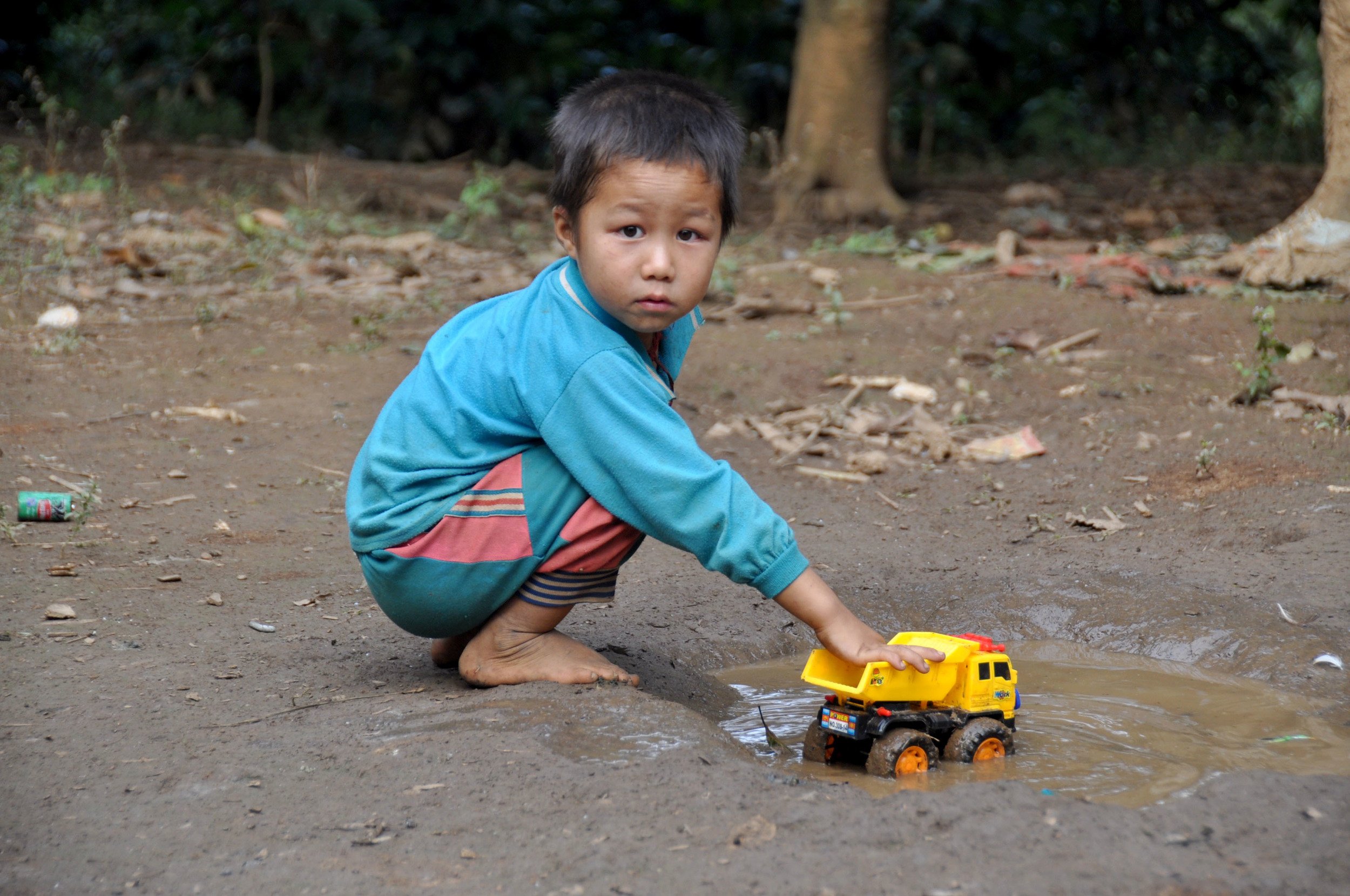

The room temperature liquid turned hot in my throat, and as I put my glass down I made eye contact with the chicken. Its beak was stubbornly poking out of the pile of bones I’d tried to disguise it with.
I looked over at the young man sitting across from me who was holding a chicken head between his fingertips and greedily gnawed and sucked at the skull. My stomach did a flip and I arranged my little cemetery of bones in an attempt to completely hide the beak beneath them.
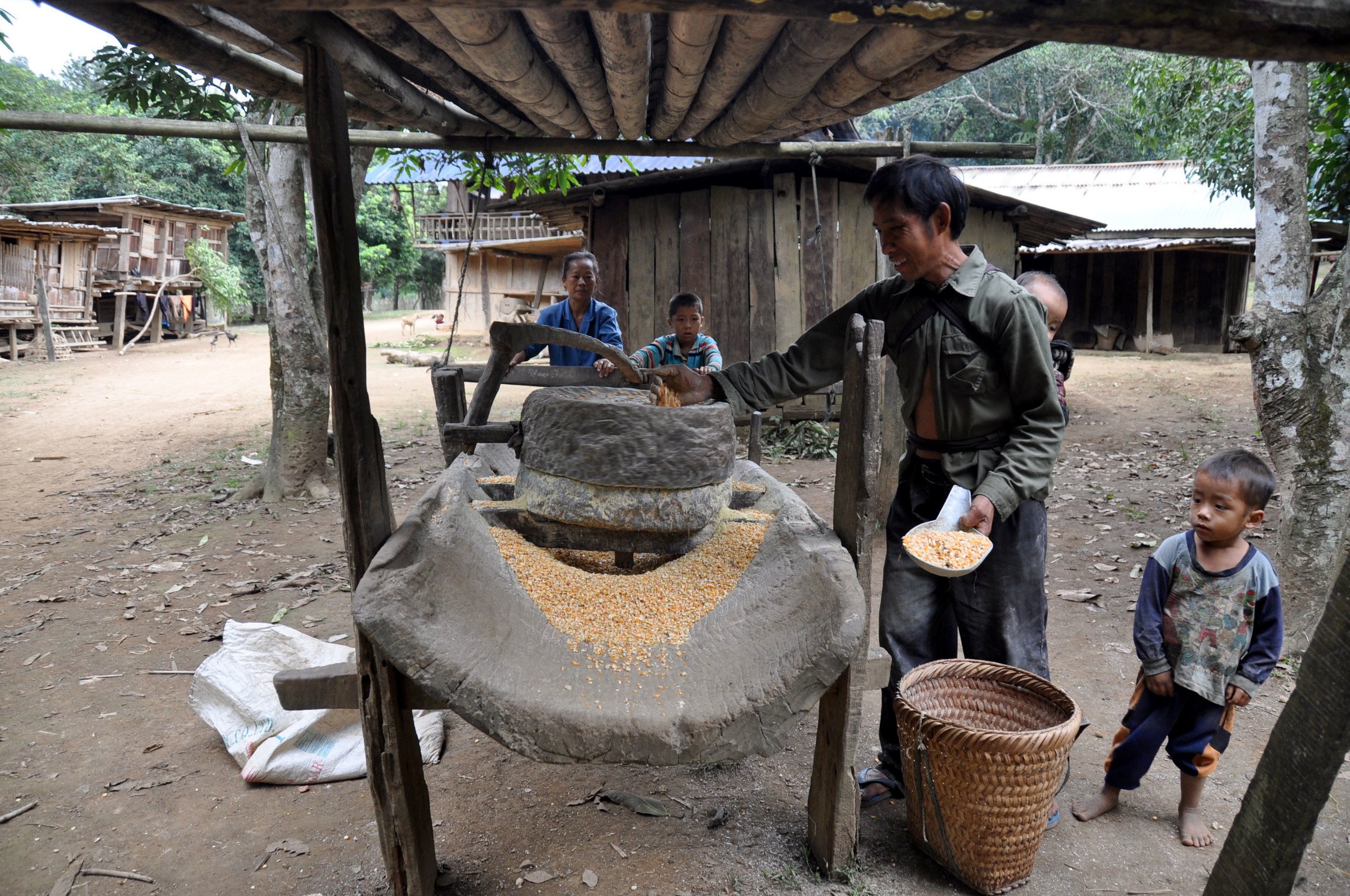



It was now my turn to observe. There was no toilet in the entire village, yet these people with so little fought over who got the privilege of feeding us. I’ve never experienced hospitality like this from people with so little.
How did I get here? I wondered once again, this time with a smile tugging at the corners of my mouth. It was an accident, really. A problem with our visas brought Ben and me back to the city of Luang Prabang for a second time. After cursing the visa gods, we decided to make the best of our bad luck and trek to a remote village.
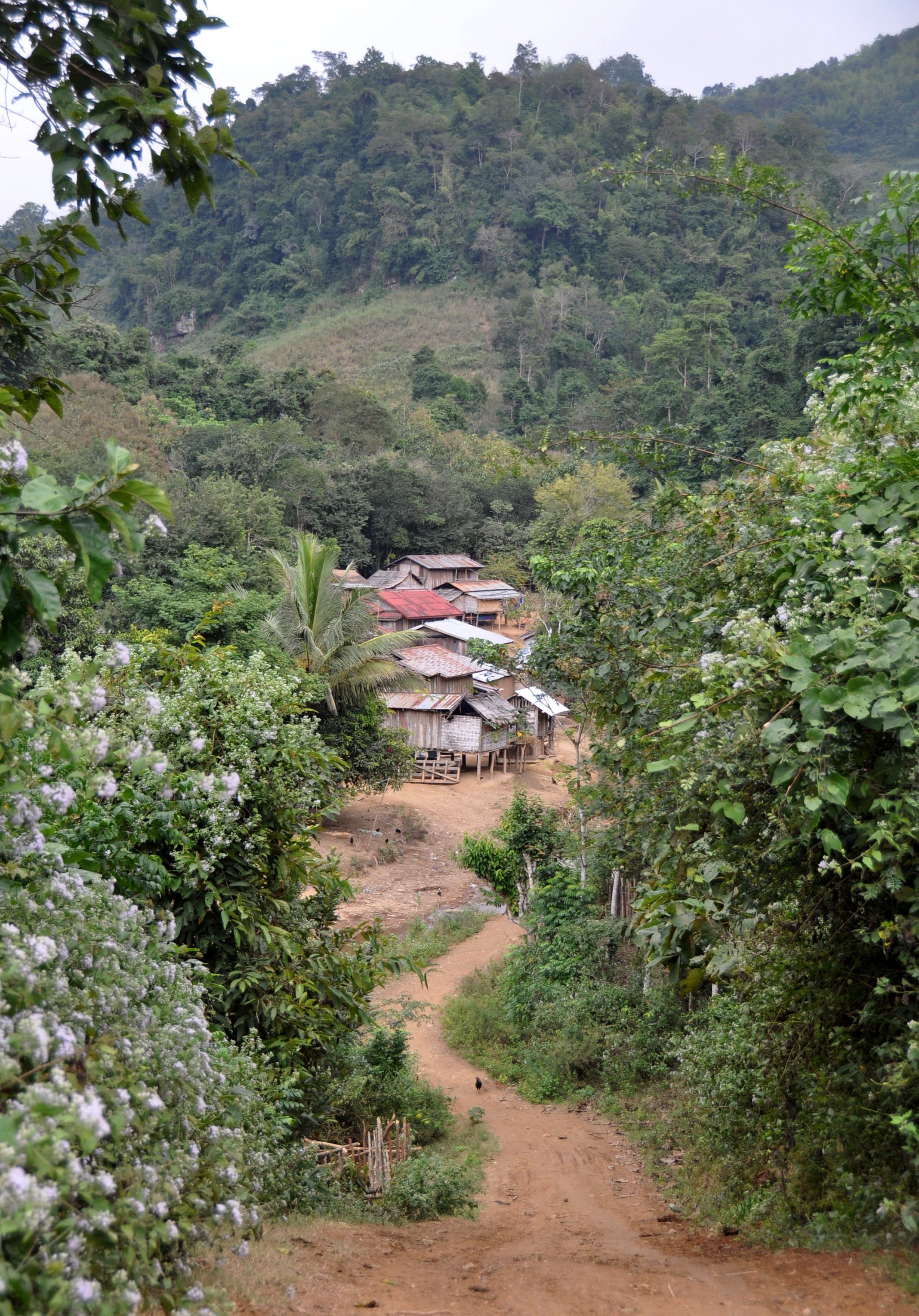



It turns out this was a beautiful accident that brought us to these people and this village, unseen by foreign eyes. And the fact that we arrived on a holiday made it all the more special.
“Whose your favorite football team?”
The young man with the chicken head in his hand was excited to practice his English. He had moved to the neighboring village on his own when he turned 12 in order to continue his education, which stops for most of the village kids after elementary school.
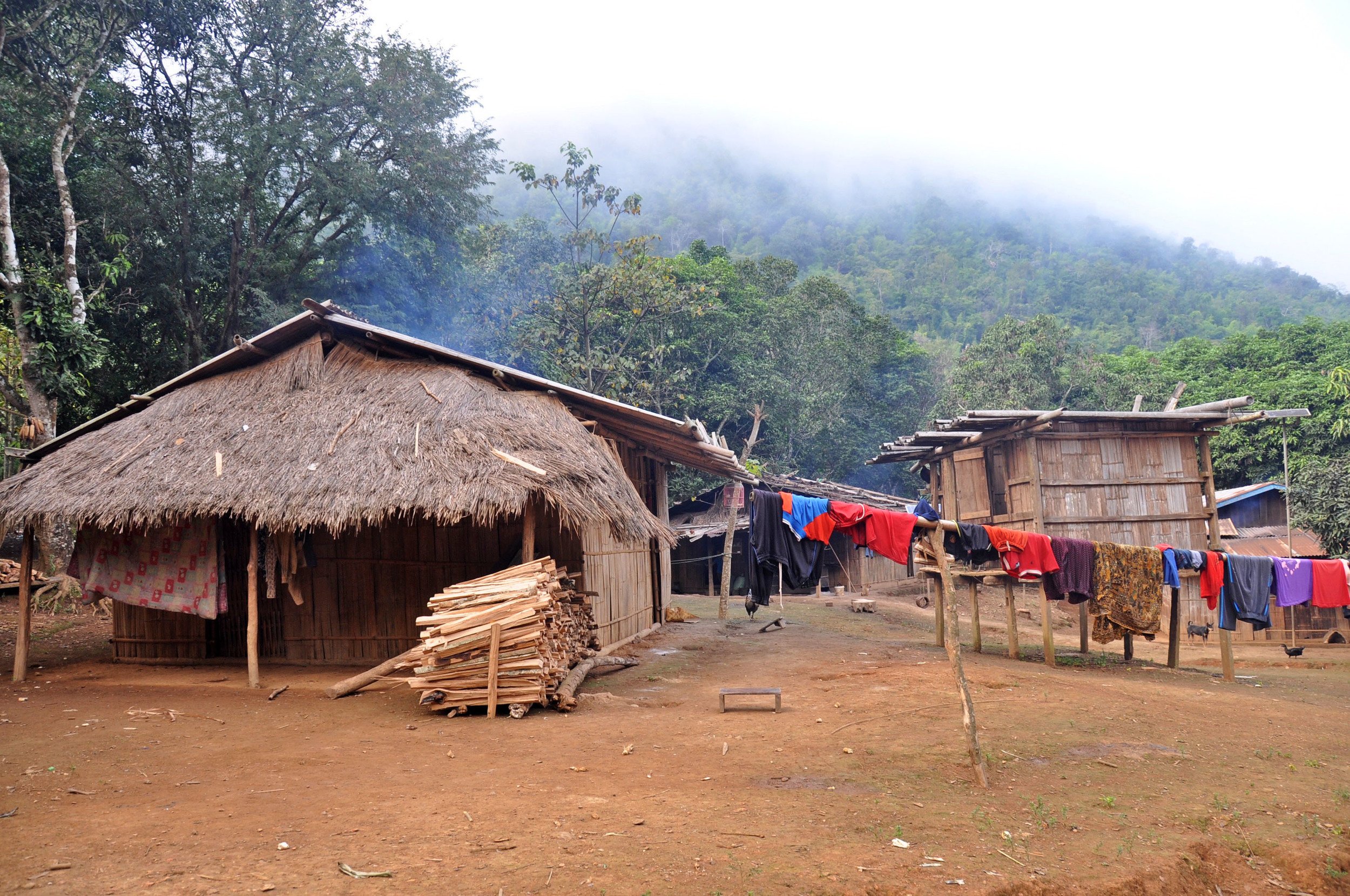



Everyone in the room looked on, waiting for my answer as if the fate of the entire village rested on my lips.
“Argentina,” I hesitated, choosing one of the only teams that I know a few players’ names.
Everyone nodded, as if I had chosen correctly. But then I realized most had no idea what I meant. I imagine they felt as I had before, not knowing what was being said, but happy to listen to these foreign words being spoken.
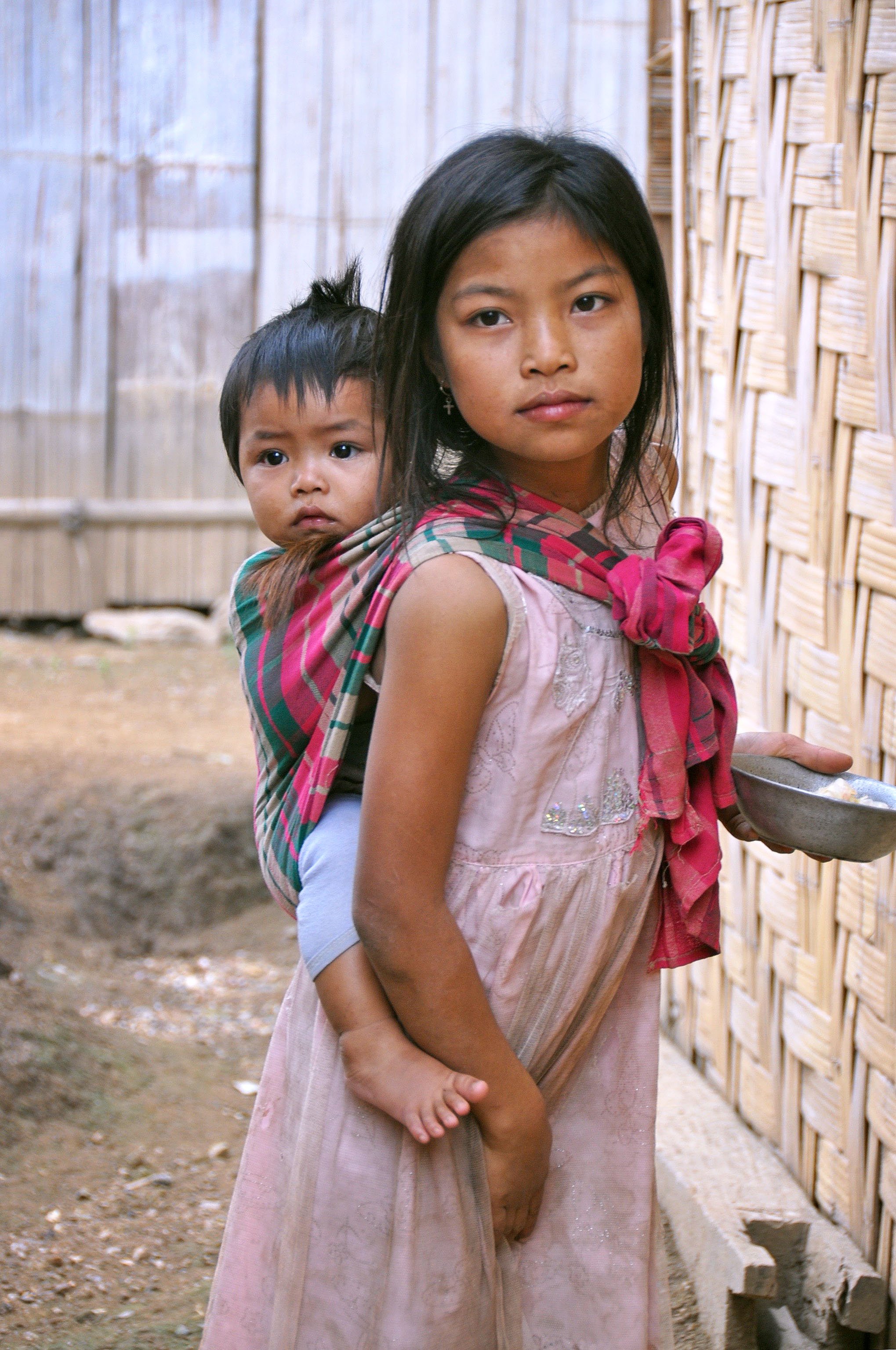



The village shaman, or medicine man, moved to the center of the room and everyone’s eyes fell on him. He made an announcement I couldn’t understand. When everyone stood, I copied. The shaman lit incense and began chanting as smoke filled the room.
Our new English-speaking friend explained that one of the boys in the village got a new motorbike and it needed to be blessed. Pieces of string were passed around, and we took turns tying them to the bike. Once we had each given the motorbike our own personal blessing, we made our way back to our plates of chicken for more rounds of “cheers!”.
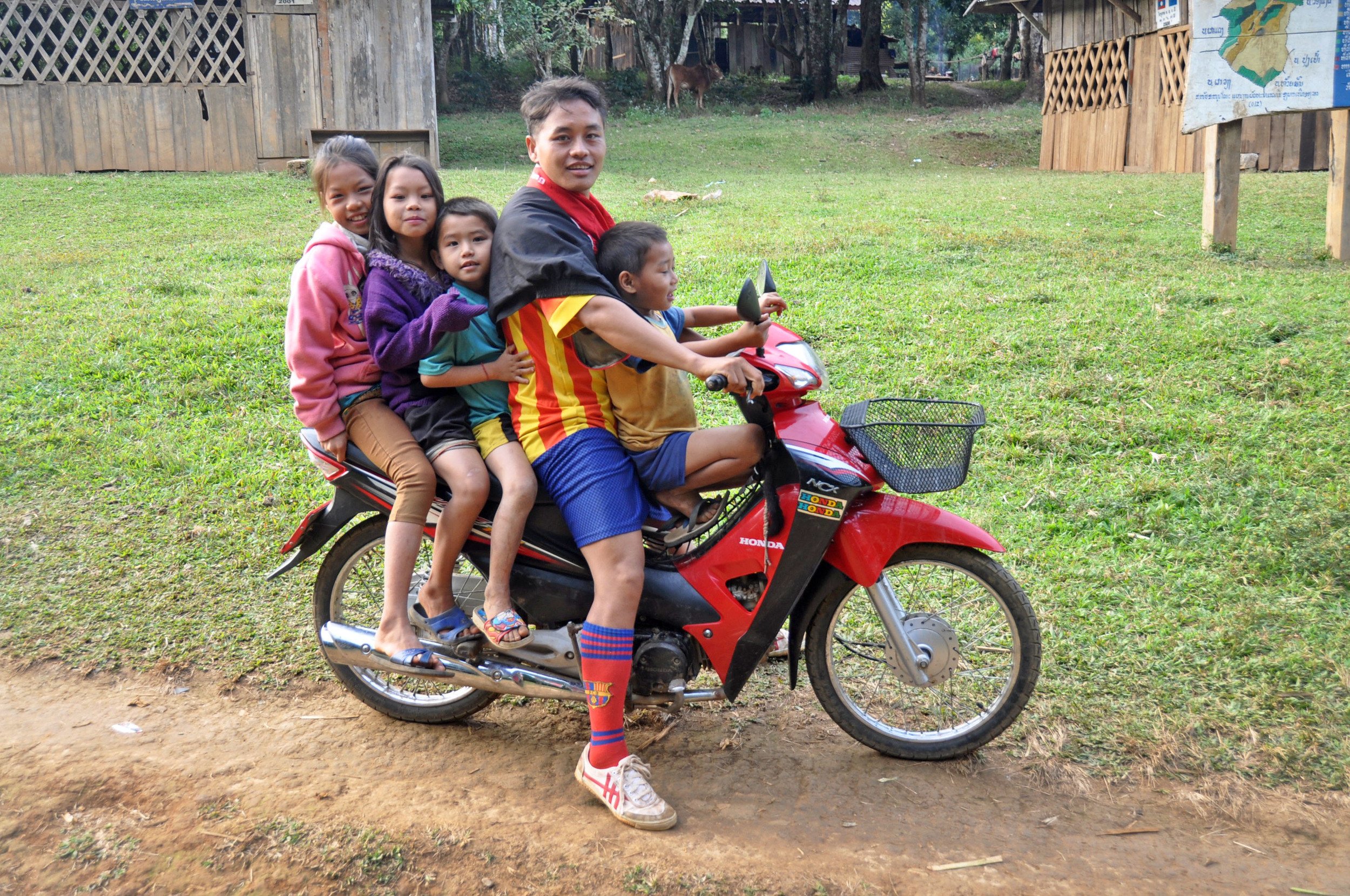



When all the chicken bones had been gnawed clean, save the buried head on my plate, the chicken feet were brought to the center of the table. One of the English-speaking villagers explained that they believe that you can see your fortune in a chicken’s foot.
“It has to be boiled before it reveals your fortune,” he added quickly, as if I might start plucking up live chickens and turning them over to see what they could tell me.
One of the elders picked up the claw-like extremity and observed it with care while everyone looked on.
These withered toes apparently forecasted a good journey for those leaving the town the next day (aka Ben and me). Everyone nodded in approval, and a few yawns punctuated the silence signifying bedtime.
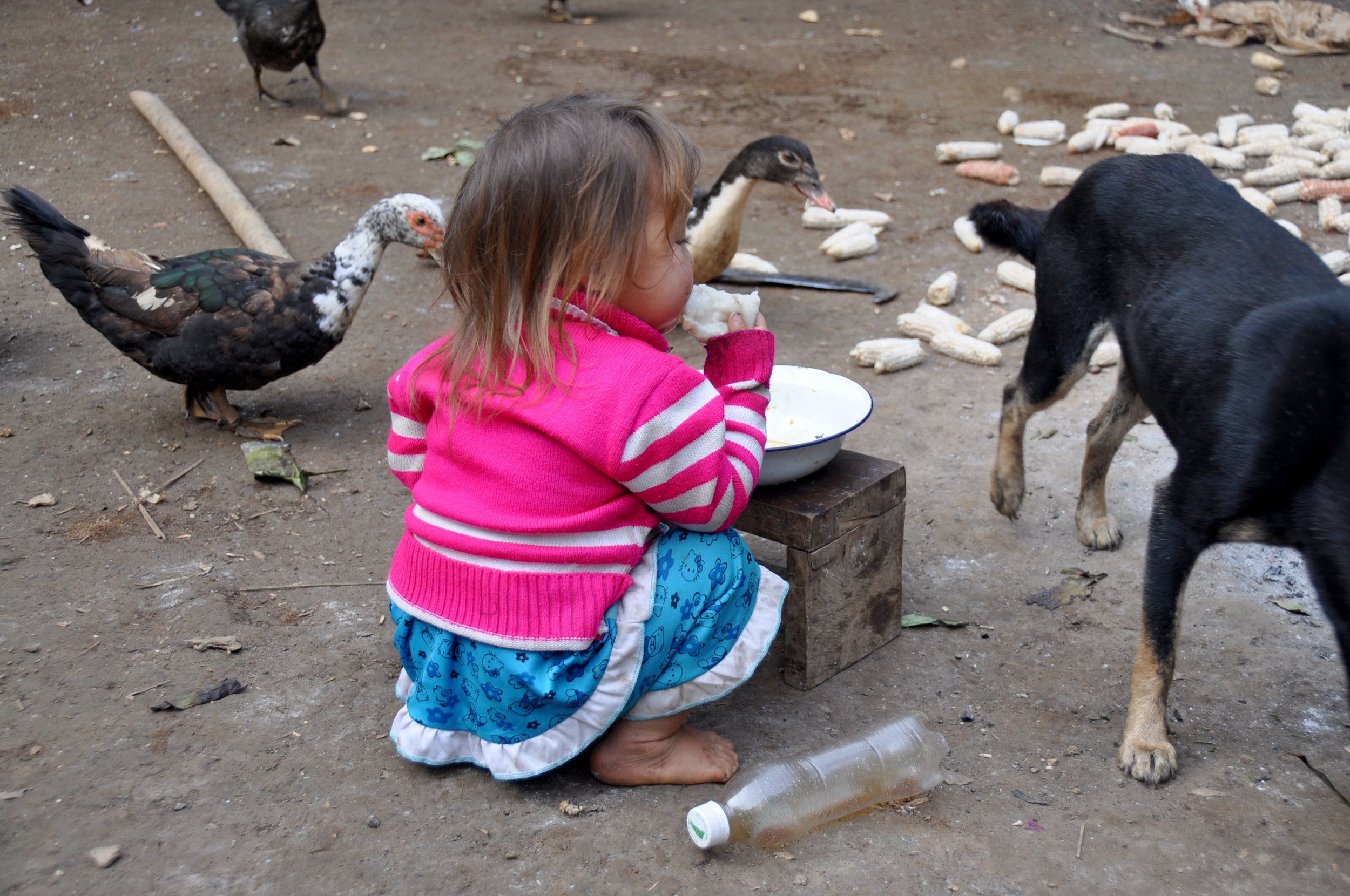



I took everything in one last time and memorized the faces around me that I knew I’d never see again. The young man who couldn’t wait to practice his English with the first foreigners he’d ever met. The young mother cradling her baby in one arm, while collecting dishes with the other. The toothless grandmother who kept grinning at me as if I was her own grandchild. The 16-year-old boy who the villagers believe has been blinded from a curse and will have to likely live his life with vision-obstructing cataracts.
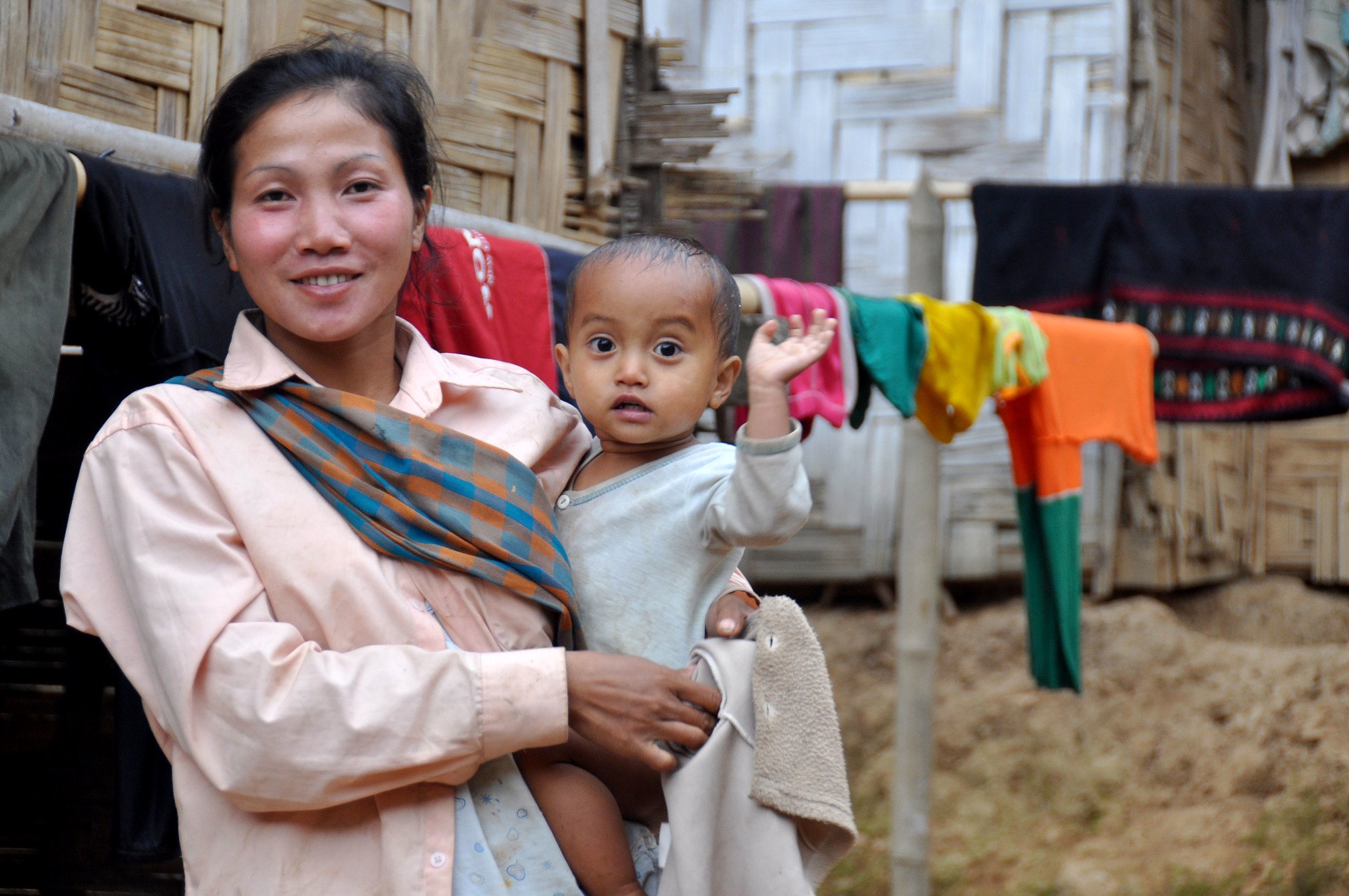



I drank in all these images, and this time thanked the visa gods for this beautiful mistake that perhaps wasn’t an accident at all.
Then I got to my feet and took one last look at the pile of bones on my plate, that damn beak still peeking through. I made eye contact with the rooster and smiled.
“You win,” I whispered.
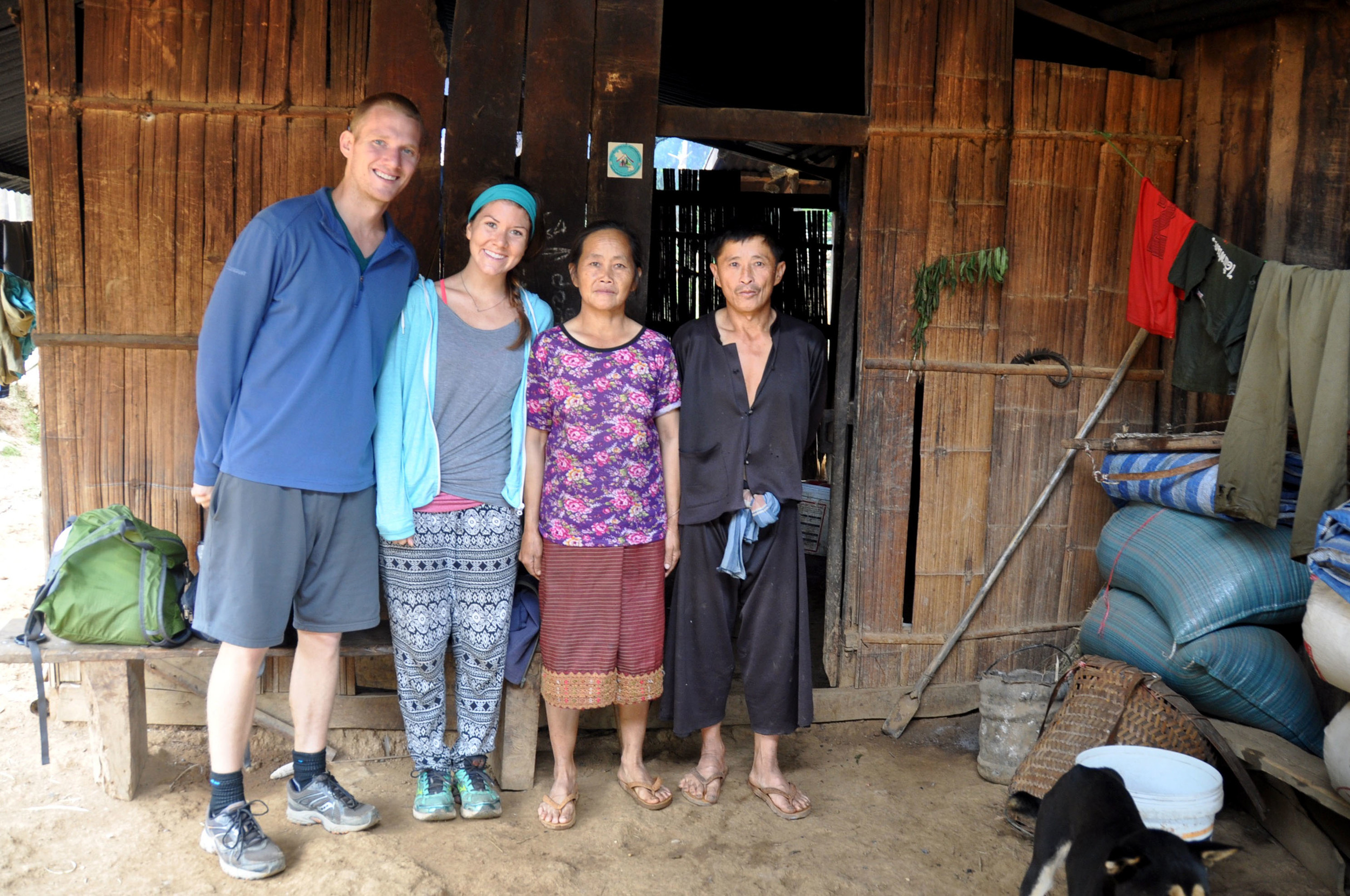



Author’s note: This is a true story from our trek to a remote Hmong hill tribe village near Luang Prabang, Laos. This was the most incredible cultural experience we’ve had anywhere in the world. The interactions were authentic and we saw things that we as foreigners hardly ever get to see. We want to thank White Elephant Adventures for this experience and the villagers for their hospitality. We love that White Elephant employs local villagers, follows ethical practices and sets up authentic treks to villages that are both sustainable and non-exploitive. If you find yourself in Luang Prabang, consider trekking to the remote villages in the countryside with White Elephant. You won’t be disappointed.
You might also like…
Save this article on Pinterest for later!
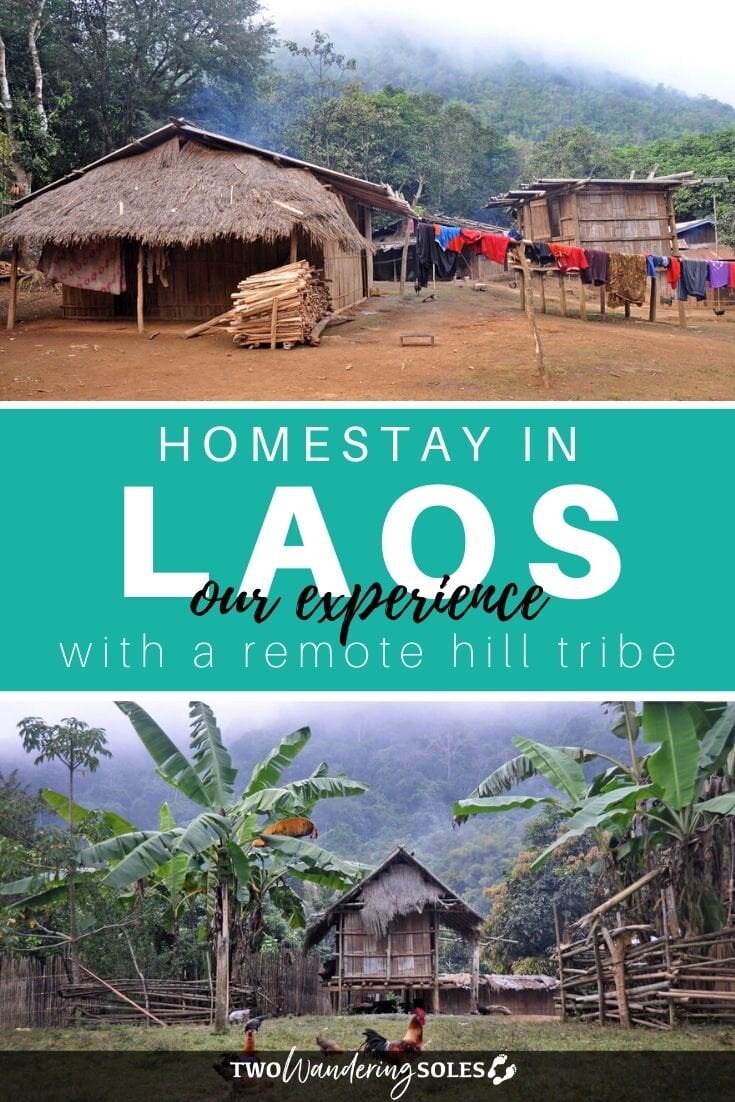



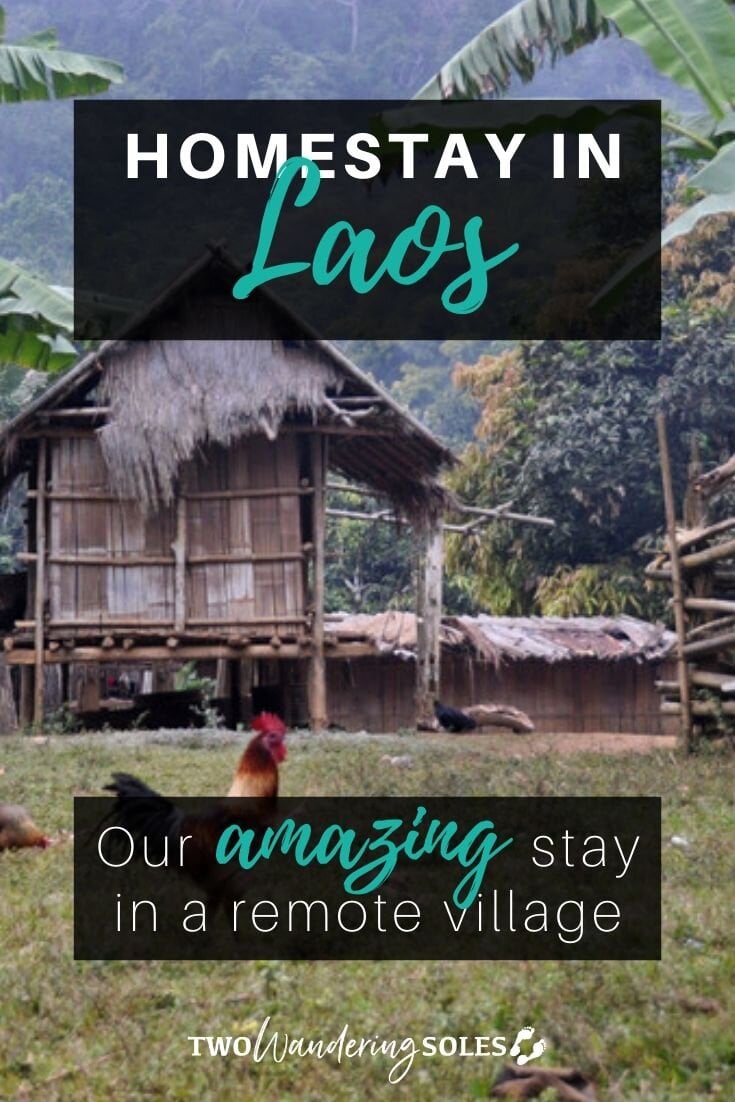



We want to hear from you!
Have you ever done a homestay? What was your experience like?


“Your story about the homestay in a remote hill tribe village in Laos is absolutely captivating! The way you’ve shared your personal experience really brings the culture and beauty of the village to life. It’s inspiring to read about the connection you made with the locals and how the experience allowed you to immerse yourself in such a unique way of life. This post beautifully highlights the importance of authentic travel and cultural exchange — a must-read for anyone looking to experience Laos off the beaten path!”
What a well written article. You should also visit Albania and go rafting there. Rafting in Osum river in Albania is a wild experience. The beauty of its canyon will make it an unforgettable experience
Thanks for sharing.
What’s the name of the village?
Thanks Guy, happy to hear you enjoyed reading about it. To this day it is still one of our favorite, most authentic travel experiences. To be honest I have no idea what the name of the village is. It was so small that it wasn’t even on Google Maps when we went. Sorry we can’t be more helpful! If you do end up in Laos, we’d definitely recommend doing a homestay. It was a wonderful experience!
Hello guys, how did you travel from Laos point of entrance to white elephant mountain tour
Hey Luis. When we were in Chiang Mai, Thailand, we bought tickets to travel by bus and slow boat down the Mekong River to Luang Prabang, Laos. Once we were in Luang Prabang, we found White Elephant Adventures. Our point of entry (and the start of the slow boat) was in Huay Xai, Laos.
What an incredible experience! I am currently planning my own travels through Asia and would love to find a homestay like this one! Could you share how you found this homestay, or the name/contact info of the family you stayed with??
Thanks!
P.S. Your blog has been an amazing resource for my trip. Keep it up!!
Micah
Hey Micah, thanks for the comment. It was one of those experiences we always look back on as one of the most authentic and beautiful we’ve had in all our travels. The company we went with is called White Elephant, and it’s located in Luang Prabang. I can’t for the life of me remember our guide’s name at the moment – I know it started with a "C" and I would remember it if I heard it! We actually stayed with his aunt and uncle instead of the normal home in a different village the trekkers stay at since it was Hmong New Year, so the village wasn’t used to visitors, but it made the experience so special. Perhaps you could request this? I hope that helps. Happy travels 🙂
A marvellous travel tale, beautifully written, I really enjoyed reading about your homestay experience. I am currently planning 6 month backpacking trip through Southeast Asia and this information is of great help. However i have some doubts about the sutainable activities you recommend booking through White Elephant Adventure. For me any agency or company who promotes riding on top of Elephants does not respect environmental practices and actually funds animal explotation, which is a really sad thing.
Once travelers do a little research about sustainable tourism they will soon understand why it is so harmful to support this type of activities.
There seems to be a deep contradiction between the elephant trekking tour and the mission of the company:
GUIDELINES FOR THE RESPONSIBLE TRAVELER
WILDLIFE and natural habitats must not be needlessly disturbed.
TOURISM should be a positive influence on local communities.
TOURISM should be managed and sustainable.
TOURISM should be culturally sensitive and contribute to greater cross-cultural understanding.
THERE must be no commerce in wildlife, wildlife products or native plants.
TOURISTS should leave with a greater understanding and appreciation of nature, conservation, and the environment.
TOURISM should strengthen conservation efforts and enhance the natural integrity of places visited.
AT THE END OF THE DAY both the tourist and the local people should be better off because of their interaction.
Just my two cents on the story but my full recognition for describing your once-in-a-lifetime experience so well, you inspired me to chase after my dreams.
Hey Nikita, thank you so much for the thoughtful comment. We’re excited to hear that you’ll be traveling in SE Asia soon!
I was pretty concerned to hear that White Elephant tours offers Elephant rides. When we were in Laos we wanted to do a homestay experience, and did a bit a research to find one we felt was doing good in the local communities. And honestly, we felt like it is a really good company that employs indigenous people and doesn’t exploit them (we’ve had not so great experiences with similar types of companies). Compared to others in the area, White Elephant seemed like the best.
When we went to their office we saw a few other tour options including kayaking and longer homestays, but I don’t remember seeing any Elephant tours, so this is the first I’ve heard of it. We definitely would have remembered because animal tourism (elephant riding in particular) is something we avidly avoided all throughout the rest of Asia. Thank you so much for bringing this to our attention – I will be contacting the company to urge them to reconsider this type of activity.
I think companies that reply on tourism really consider what travelers want. If people pay for Elephant rides, they will continue to offer them. But if enough people, like yourself, reach out and politely urge them to consider their practices, this type of harmful tourism will cease to exist.
We always try our best to travel ethically and sustainably, but nobody is perfect. The best we can do is educate ourselves and continue to learn and grow.
Hey Nikita (and for anyone reading),
I’ve only just came across this comment, but a late reply is better than none…
Please note White Elephant Adventures is actually the only adventure tour company in town at present NOT to profit from any elephant experience. The only place we support is the Elephant Conservation Centre in Sayabouri Province, the only dedicated elephant conservation centre in Laos, who have actually managed their first soft release of elephants back into the wild this year!
Any elephant activities on selected tours with us are entirely optional, meaning that guests who wish to do this must organize by themselves at the location (such as the waterfall) and pay directly to the local operators, not us! The reason we don’t say no options for elephants is that anyone interested in doing it would then simply book directly with an elephant camp, and we then lose an opportunity to impart information and direct them to one of the better facilities. It should also be noted, while some camps are not ideal, if they closed down overnight most of those elephants would end up in neighboring countries and likely end up in worse conditions, and keeping them in-country helps keep the genetic base locally giving the Elephant Conservation Centre more power to act effectively for future elephant release. It cannot be done overnight.
I understand our website is outdated and not so clear on this, but this is in the process of changing. Thanks.
Lastly, for anyone interested where we get our name. It comes from Airavata (Hindu) / Erawan (Thai) – which was ridden by the god Indra, the image of which was used on the old Royal Flag of Laos.
Please do email me with any questions.
Best wishes,
Alex.
Owner – White Elephant Adventures.
Just a quick shout. The boy on the motorcycle is wearing an FC Barcelona soccer shirt. Their star player is of course Lionel Messi, who is…drum roll….Argentinian. Wise choice of nation for someone who doesn’t know much about soccer!
Haha I guess that was a lucky response 😉 I saw he was wearing a Messi jersey but I didn’t even put that together since he plays for Spain. Thanks for pointing that out, Lars!
Homestays are such a wonderful way to learn to learn about a culture. Also a great story about the rooster.
We agree! It was such a wonderful cultural experience, and we hope to do some more eventually. I’m so glad you enjoyed the story about the rooster. It is much funnier now than it was in the moment 🙂